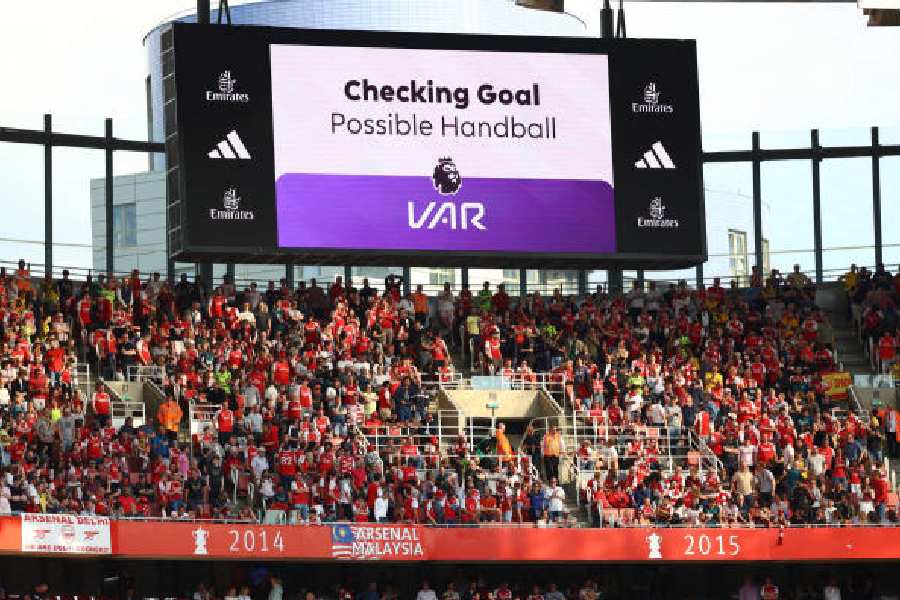Premier League teams voted in favour of keeping Video Assistant Referees (VAR) on Thursday, despite the considerable amount of criticism this past season about the technology-aided officiating system.
The BBC reported that 19 of the 20 teams voted in favour of keeping VAR, which was first introduced in the 2019-20 season, with Wolverhampton Wanderers allegedly casting the lone vote against.
“While VAR produces more accurate decision making, it was agreed that improvements should be made for the benefit of the game and supporters,” the league said in a statement.
Six key areas were identified during discussions with clubs:
• Maintaining a high threshold for VAR.
• Reducing delays to the game, primarily through the introduction of semi-automated offside technology (SAOT)
• Improving fan experience through a reduction in delays and in-stadium announcements from referees to explain post-VAR decision changes.
• More robust VAR training to improve consistency, with an emphasis on speed while preserving accuracy.
• More transparency and communication around VAR.
• A fan and stakeholder VAR communication campaign to better clarify the technology’s role in the game.
The league confirmed in April that SAOT will be introduced in the autumn of 2024 to provide quicker and consistent placement of the virtual offside line, based on optical player tracking.
Wolves said they were disappointed in the vote’s outcome in a statement to the BBC.
“(But) we acknowledge and accept the decision made by our fellow clubs and we are reassured that the Premier League is taking the concerns of clubs and supporters seriously,” Wolves said.
“We welcome the commitment to improve VAR... While we still believe the Premier League football would be superior for supporters, players, coaches and viewers without VAR, we think that these improvements are crucial for the integrity of the game and for enhancing the overall matchday experience for our supporters.”
The league and the Professional Game Match Officials Ltd. (PGMOL) said they will continue to lobby the International Football Association Board (IFAB) to permit greater flexibility to allow live video and audio broadcast during VAR reviews.










